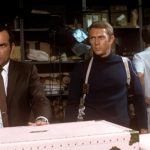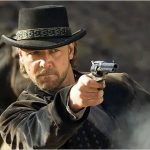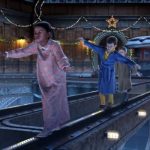🎬 One Flew Over the Cuckoo’s Nest (1975): A Riveting Tale of Rebellion and Control
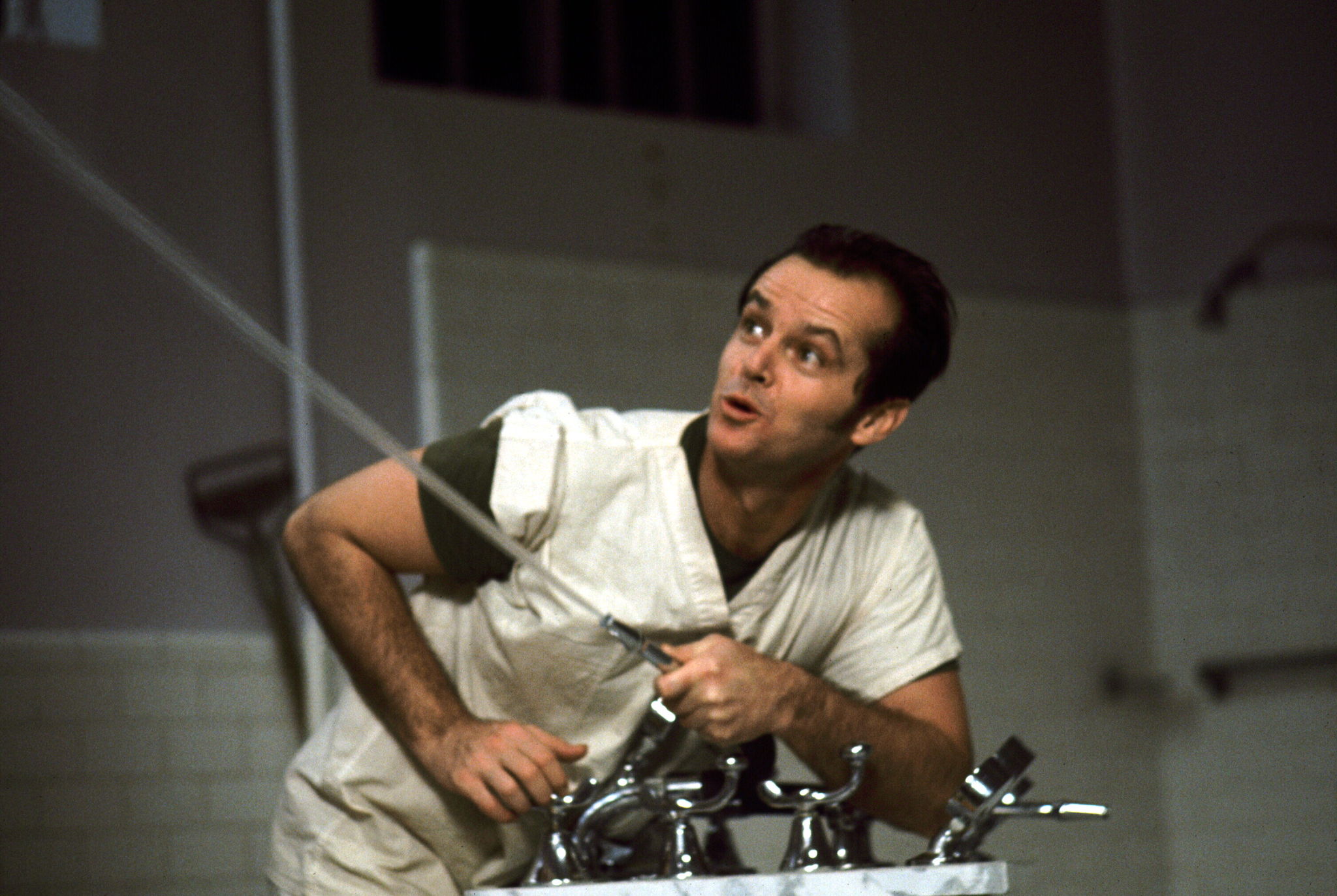
One Flew Over the Cuckoo’s Nest (1975): A Riveting Tale of Rebellion and Control
Director: Miloš Forman
Based on: Ken Kesey’s 1962 novel One Flew Over the Cuckoo’s Nest
Main Cast:
- Jack Nicholson as Randle Patrick McMurphy
- Louise Fletcher as Nurse Ratched
- William Redfield as Dale Harding
- Will Sampson as Chief Bromden
- Brad Dourif as Billy Bibbit
Plot Overview:
One Flew Over the Cuckoo’s Nest tells the story of Randle Patrick McMurphy (Jack Nicholson), a rebellious criminal who fakes insanity to escape prison labor and serve his sentence in a mental institution. Once inside, McMurphy becomes a symbol of defiance against the oppressive authority of Nurse Ratched (Louise Fletcher), who runs the ward with an iron fist. The movie portrays the battle of wills between McMurphy and Nurse Ratched, as McMurphy tries to liberate the other patients from their psychological and institutional shackles, ultimately leading to tragic consequences.
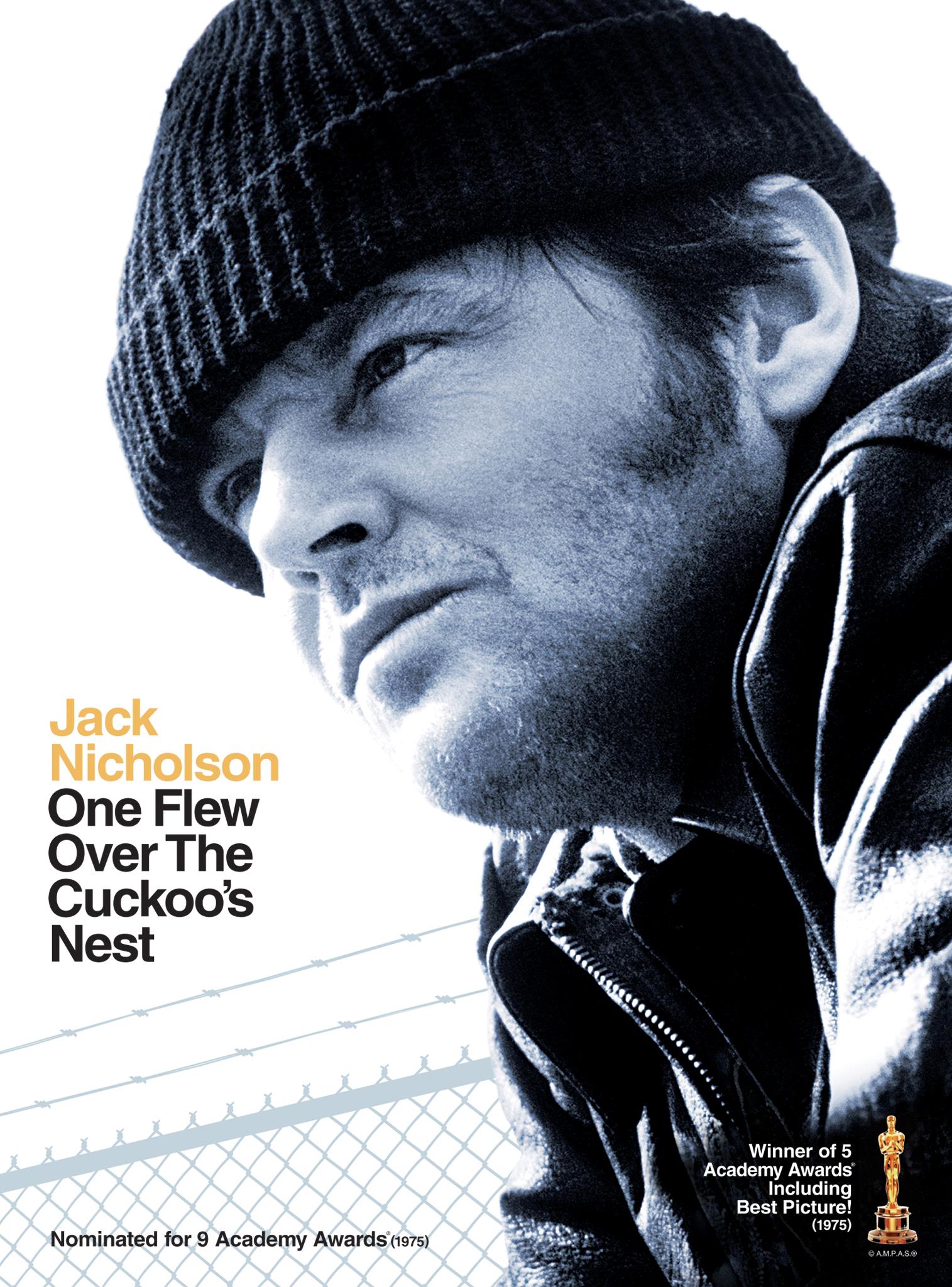
What to Expect from One Flew Over the Cuckoo’s Nest
- Jack Nicholson’s Iconic Performance:
- As McMurphy, Nicholson delivers one of the most memorable performances in cinema history. His portrayal captures the character’s rebellious nature, wit, and vulnerability, making McMurphy both a hero and a tragic figure in his fight against the system.
- Thematic Exploration of Freedom vs. Control:
- At its core, the film explores themes of freedom, control, and institutionalization. The struggle between McMurphy and Nurse Ratched symbolizes the broader conflict between individuality and oppressive authority. The mental institution becomes a microcosm for society, with the patients representing the suppressed and the staff representing control.
- Nurse Ratched’s Chilling Authority:
- Louise Fletcher’s performance as Nurse Ratched is equally compelling. Her calm, cold demeanor contrasts sharply with McMurphy’s chaotic energy. Nurse Ratched embodies bureaucratic cruelty, enforcing strict rules under the guise of care but stifling the patients’ humanity in the process.
- A Deeply Emotional Journey:
- The film presents a wide range of emotions, from moments of humor and camaraderie among the patients to heartbreaking scenes that explore the devastating effects of mental illness and institutionalization. McMurphy’s influence on the other patients, especially the timid Billy Bibbit and the silent Chief Bromden, adds layers of emotional depth to the narrative.

- Powerful Supporting Cast:
- The ensemble cast, including Brad Dourif’s vulnerable Billy and Will Sampson’s towering but gentle Chief Bromden, adds to the film’s richness. Each patient is portrayed with dignity and complexity, giving the audience insight into their individual struggles and growth under McMurphy’s influence.
- A Commentary on Mental Health Treatment:
- The film is a scathing critique of the way mental health institutions functioned at the time. The institution is portrayed as a place of control rather than healing, and the methods used to “treat” the patients, such as electroshock therapy and lobotomy, are shown as tools of oppression rather than compassion.
Cinematic Techniques and Design
- Cinematography and Direction:
- Miloš Forman’s direction is subtle yet powerful. The camera often lingers on the faces of the patients, capturing their silent suffering and moments of hope. The confined, claustrophobic setting of the ward intensifies the feeling of being trapped, both physically and mentally.
- Score:
- Jack Nitzsche’s minimalist score adds to the film’s emotional depth. The music is used sparingly, allowing the tension between the characters and the oppressive atmosphere of the institution to take center stage.
- Symbolism:
- The film is rich with symbolic imagery, particularly in the character of Chief Bromden, whose silence represents the internalized oppression faced by the patients. His ultimate act of liberation at the end of the film serves as a powerful metaphor for breaking free from societal control.
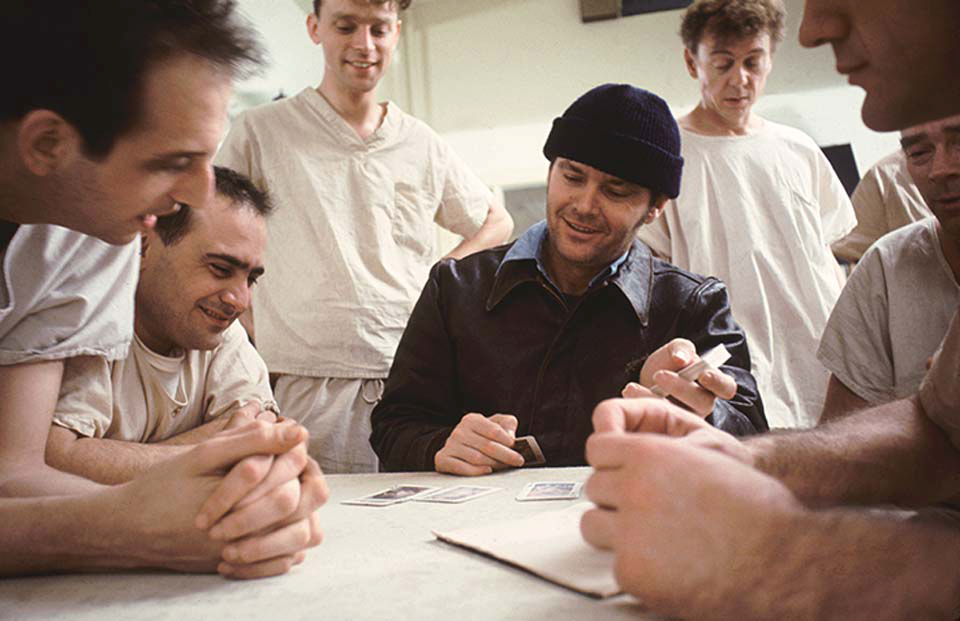
Legacy and Influence
- Cultural Impact:
- One Flew Over the Cuckoo’s Nest became a cultural touchstone, resonating with audiences due to its critique of authority and its exploration of individuality. The film’s themes of rebellion and freedom struck a chord during the 1970s, a time of social and political upheaval.
- Awards and Accolades:
- The film made history by sweeping the five major Academy Awards: Best Picture, Best Director (Miloš Forman), Best Actor (Jack Nicholson), Best Actress (Louise Fletcher), and Best Adapted Screenplay. Its critical and commercial success solidified its place as one of the greatest films of all time.
- Influence on Future Films:
- One Flew Over the Cuckoo’s Nest has influenced countless films that explore the power dynamics within institutions and the struggle between individuality and conformity. Its portrayal of mental health treatment and institutionalization sparked conversations about patient rights and reform.
Conclusion
One Flew Over the Cuckoo’s Nest (1975) is a timeless exploration of the human spirit, power, and control. With stellar performances by Jack Nicholson and Louise Fletcher, it delves deep into the emotional and psychological struggles within an oppressive institution. The film’s critique of authority and its powerful narrative continue to resonate with audiences, making it a masterpiece of American cinema. If you haven’t seen it, this classic is a must-watch, offering an unforgettable look at the triumph and tragedy of the human condition.
Suggested videos for you:
Suggested videos for you:
Suggested videos for you:
Suggested videos for you:



